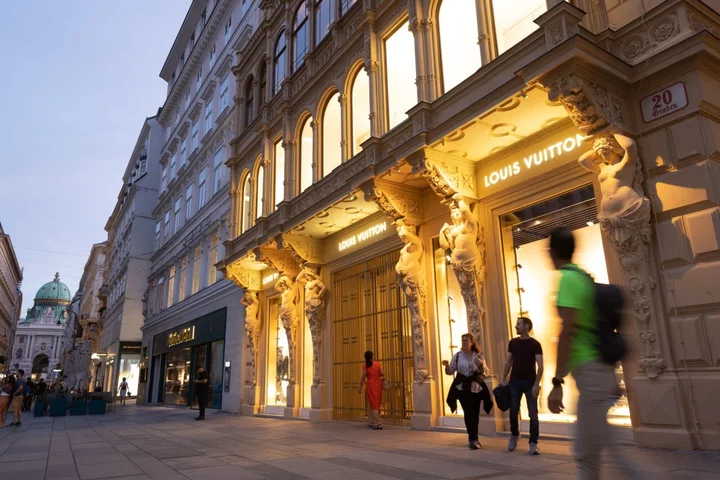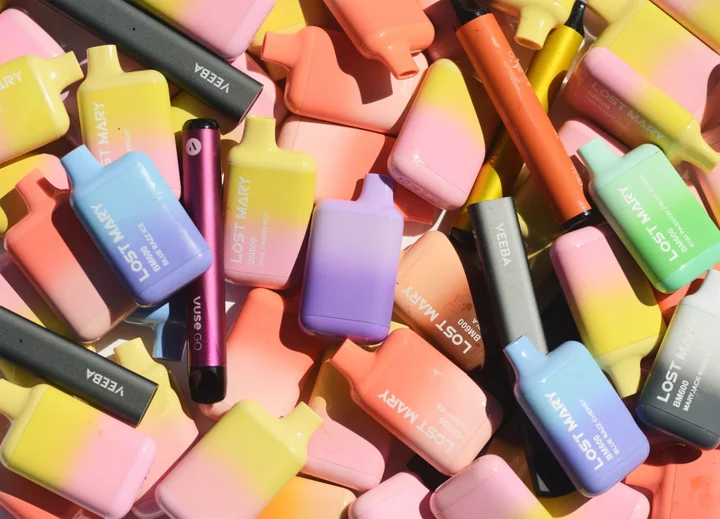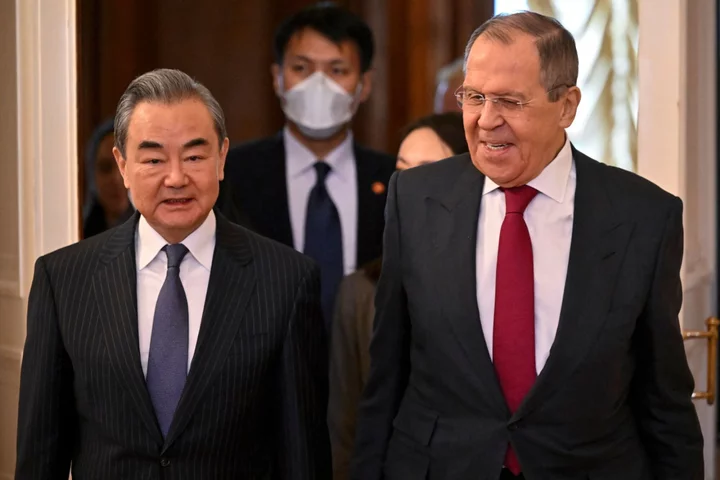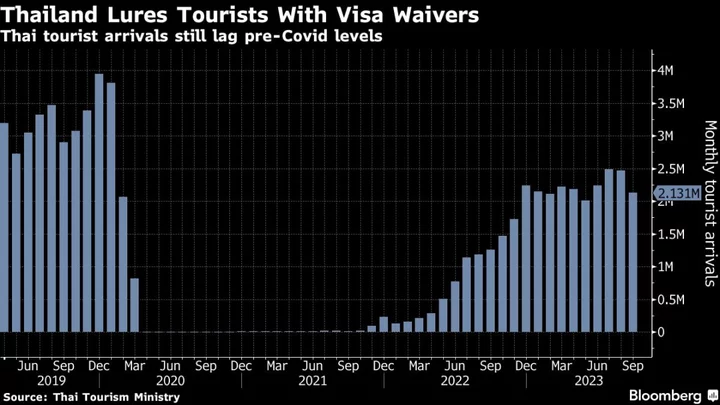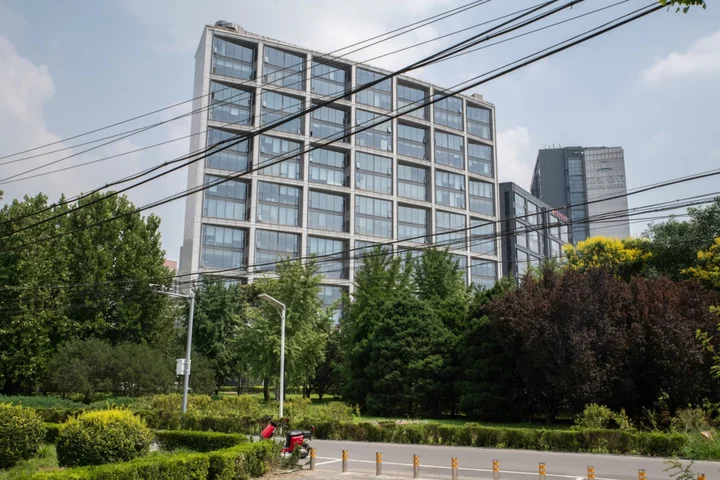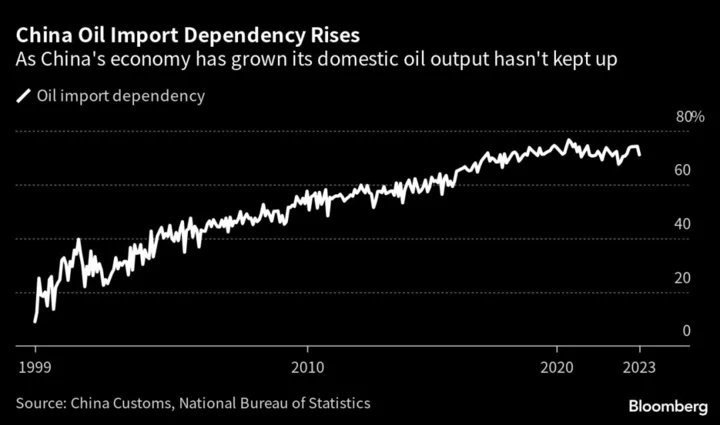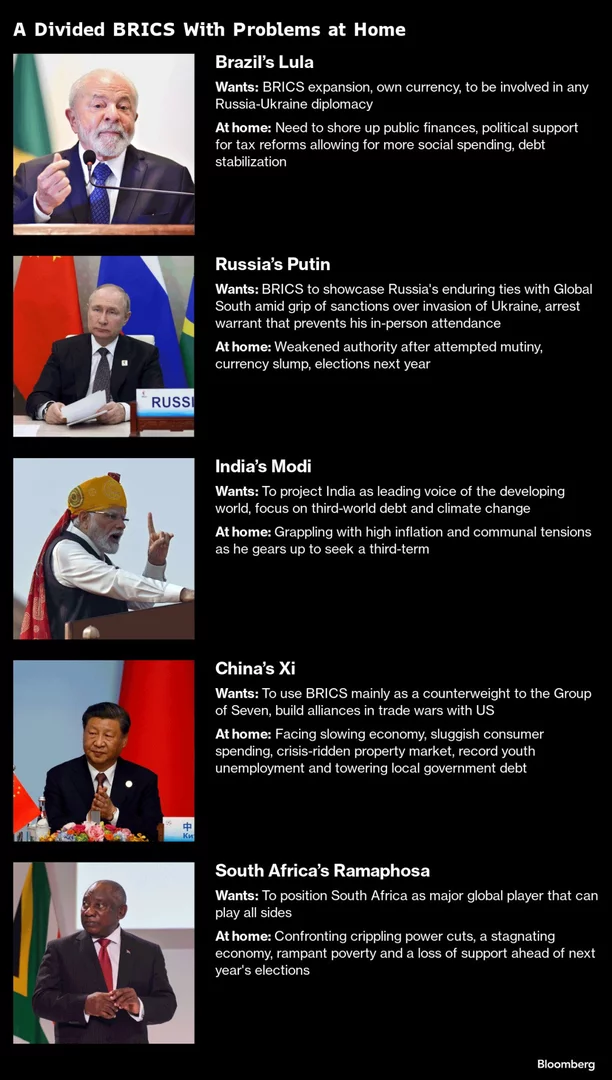Richemont’s wake-up call for luxury watchers this week raises the ante for LVMH, L’Oreal SA and Gucci-owner Kering SA, getting ready to report in the coming days.
Add consumer giants Nestle SA and Unilever Plc, German automakers and a host of big banks to the mix, and next week’s quarterly results promise to reveal much about pricing and spending power as inflation cools and interest rates move closer to a peak.
The extent to which France’s luxury stalwarts benefited from the rebound in travel and China’s reopening will be measured against prospects for economic growth in their key markets. Kering will be in particular focus after Bloomberg reported that activist Bluebell bought a stake in the group, setting up a potential fight with its biggest shareholder, the Pinault family. Hermes is also due.
Solid results from JPMorgan and a benefit of the doubt on Goldman pave the way for Deutsche Bank AG and Barclays Plc as European bank earnings pick up pace. Drugmakers GSK Plc, Sanofi and AstraZeneca Plc also report.
Highlights to look for next week:
Monday: Julius Baer’s (BAER SW) first-half report before the Swiss open should reveal a surge in inflows as the wealth manager gained from Credit Suisse Group AG’s demise. Net new money is expected to come in at 6.46 billion Swiss francs ($7.5 billion) for the first six months compared with outflows of 1.1 billion francs the year before, consensus shows. Investors will also be looking out for potential share buybacks and M&A plans.
- Ryanair (RYA ID) probably benefited from an expanded fleet, strong demand and more stable costs in its fiscal first quarter, according to Bloomberg Intelligence. That said, air traffic control and pilot strikes, as well as potential delays in Boeing deliveries, present challenges that could negatively impact the outlook. Passenger numbers probably grew 10% in the quarter, 25% above pre-Covid levels, consensus shows.
Tuesday: LVMH’s (MC FP) first-half results after the Paris close should show gains from China’s reopening and a recovery in travel retail, factors that may help offset a slowdown in the US, according to BI analyst Deborah Aitken. Demand was probably robust across Asia, also in Japan, and stronger pricing power may have bolstered margins. Low net debt leaves room for deals.
Read more: Looking to China for Next Leg Higher Carries Risks: Taking Stock
- Unilever’s (ULVR LN) organic sales growth may have topped 8% in the first half, driven by higher prices, helping it achieve at least the upper end of its guided range of 3%-5% for 2023, according to BI. The company could boost guidance by 100 basis points and possibly point to the top of the range, according to Barclays analyst Warren Ackerman. All eyes will be on new Chief Executive Hein Schumacher’s initial views after taking the helm this month.
Wednesday: Deutsche Bank (DBK GY) should have benefited from higher interest rates, supporting higher year-on-year revenue growth at its corporate and private banks in the second quarter, according to BI. That should boost second-quarter net revenue, which is expected to grow 7%, consensus shows. Management has already warned of a possible 20% drop in fixed-income trading for the period. Investors will also be on the lookout for confirmation of its plan to start share buybacks in the second half of the year.
Thursday: Kering (KER FP) and L’Oreal (OR FP) are expected to report after market. Kering is taking steps to turn around the embattled Gucci brand, with the impending departure of its head Marco Bizzarri in September. That hasn’t stopped shareholders taking things into their own hands, as activists including Bluebell circle. Organic growth at the brand is expected to reach 4.2% in the second quarter, up from 1% in the first, consensus shows. Meanwhile, L’Oreal could look to online ad spending in China to lift cosmetics sales at physical stores this year, according to BI’s Catherine Lim. The group’s organic growth is expected to soften to 11.7% from 13% from January to March.
- Nestle’s (NESN SW) results, due at 7:15 a.m. in Zurich, may show a second-quarter slowdown, but growth in the first half should still land squarely within the company’s 6%-8% target for the year, consensus shows. Still, fragile consumer confidence could push people toward cheaper brands, making the guidance more challenging in the second half, according to BI’s Duncan Fox. Marketing spending will be key to both organic growth and operating margin.
Friday: AstraZeneca and Sanofi follow hot on the heels of Novartis’s report this week. AstraZeneca’s second-quarter results may get a $712 million boost following the simplification of a royalty contract with Sanofi and SOBI, according to BI. While that should help counterbalance stiff year-earlier comparisons, the company may hold off on a guidance adjustment until it gets a better reading of full R&D spend, which probably increased last quarter. Sanofi may have gotten a boost from early flu vaccine supply in the Southern Hemisphere, the US rollout of hemophilia drug Altuviiio, and strong growth from eczema treatment Dupixent. At the same time, the absence of further Covid-related revenue and adverse currency moves may hold results back, BI said.
- To subscribe to earnings coverage across your portfolio or other earnings analysis, run NSUB EARNINGS.
- Follow our Top Live blogs for real-time coverage and analysis of the biggest results.
- For more on what’s going on in other regions, see the US Earnings Week Ahead or the Asia Earnings Week Ahead, and see the ESG Stock Watch for a selection of the environmental, social and governance themes that may come up on the week’s earnings calls.
--With assistance from Valentine Baldassari, Jenny Che, Andrey Biryukov, Simon Lee and Chloé Meley.

